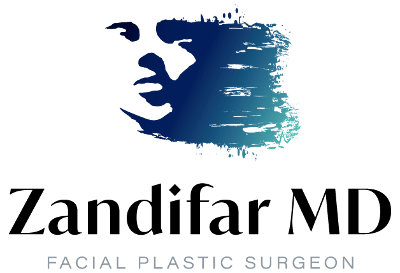Healing after facial cosmetic surgery is a delicate process—one that depends not only on the skill of your surgeon but also on your aftercare choices. Among the most overlooked, yet critical, factors influencing surgical outcomes is sun exposure. Whether you’ve undergone a rhinoplasty, facelift, or skin resurfacing, how you treat your skin in the weeks and months afterward can significantly impact both the healing process and your final aesthetic results.
At ZandifarMD.com, Dr. Hootan Zandifar emphasizes post-surgical sun protection as a key component of achieving optimal skin restoration and long-term satisfaction. In this article, we’ll explore why avoiding sun exposure matters, how it affects healing tissues, and what you can do to protect your investment in your appearance.
How Sun Exposure Affects Healing Skin
UV Radiation and Cellular Damage
Ultraviolet (UV) radiation is a major environmental stressor on the skin. After surgery, your skin is in a highly sensitive state, with cells actively repairing incisions, reducing inflammation, and remodeling collagen. Exposure to UV rays during this time increases oxidative stress and inflammation, which can interfere with these healing mechanisms.
UV rays also suppress immune function in the skin, increasing your risk of infection, prolonged redness, and irritation. Post-operative skin is thinner and more fragile, making it even more susceptible to damage.
Increased Risk of Hyperpigmentation and Scarring
One of the most significant concerns related to sun exposure after surgery is hyperpigmentation. Melanocytes—cells responsible for pigment—can become overstimulated when exposed to sunlight during recovery. This can lead to uneven dark patches over or around incisions, even in patients who normally don’t experience pigment issues.
Additionally, UV exposure can cause surgical scars to become darker, thicker, or more noticeable over time. While scars naturally mature over 6–12 months, early sun exposure may interfere with this process, leading to suboptimal results or even permanent discoloration.
Procedures Most Vulnerable to Sun Exposure
All facial surgeries and skin treatments require diligent sun protection, but some are especially vulnerable:
- Laser Skin Resurfacing: Post-laser skin is extremely photosensitive for several weeks. UV exposure during this period can lead to burns, prolonged redness, or uneven skin tone.
- Facelifts and Neck Lifts: Incision lines, especially around the hairline or ears, are prone to hyperpigmentation when exposed to UV rays.
- Rhinoplasty: The nasal bridge is particularly exposed and can darken or swell if subjected to direct sun.
- Eyelid Surgery (Blepharoplasty): The thin skin around the eyes heals slowly and is easily damaged by UV light.
Even non-surgical treatments like microneedling, chemical peels, and injectable treatments benefit from careful sun avoidance, especially in the days following the procedure.
How Long to Avoid Sun Exposure After Surgery
While every patient and procedure is unique, general guidelines for post-surgical sun protection include:
- First 2 Weeks: Absolutely avoid direct sun. Healing skin is vulnerable to irritation, swelling, and pigment changes. Use wide-brimmed hats and stay indoors when possible.
- Weeks 3–8: Continue to avoid direct sunlight. Begin using medical-grade sunscreen (SPF 30 or higher), even on cloudy days, as your skin is still healing beneath the surface.
- Months 2–6: Protect incision areas diligently. Even after your skin “looks healed,” the deeper remodeling phase is ongoing. Sunscreen should remain part of your daily routine.
- Long-Term: Make sun protection a habit, not just for healing, but to preserve results. UV damage accelerates aging and collagen breakdown, undoing the benefits of your procedure over time.
Tips for Sun Safety After Cosmetic Procedures
Choose the Right Sunscreen
Look for broad-spectrum, physical (mineral-based) sunscreens with zinc oxide or titanium dioxide. These offer immediate protection without the irritation that chemical sunscreens can cause to healing skin.
Use Physical Barriers
Wide-brimmed hats, UV-blocking sunglasses, and breathable scarves are excellent tools for reducing incidental sun exposure. Don’t rely on sunscreen alone—shade and clothing are your first defense.
Be Mindful of Indirect Sunlight
Glass windows, car windshields, and reflected light from water or snow still emit harmful UV rays. Indoor environments with lots of natural light can expose your skin to radiation without you realizing it.
Keep Wounds Moisturized and Covered
If you’re still in the early healing phase, keep incision lines covered with silicone strips or surgical tape as directed. Moist wound healing not only prevents scarring but also offers a layer of UV protection.
The Role of Expert Guidance in Recovery
At ZandifarMD, every surgical and non-surgical patient receives detailed post-treatment instructions, including sun protection protocols. Dr. Zandifar customizes each care plan based on the procedure performed, your unique skin type, and your lifestyle.
As a double board-certified facial plastic surgeon, Dr. Zandifar understands that healing doesn’t end when the procedure does. True aesthetic success comes from combining surgical skill with comprehensive aftercare—and that includes protecting your skin from the sun.
Conclusion: Protect Your Skin and Your Results
Cosmetic surgery is an investment in your appearance, confidence, and long-term well-being. But the journey to your best results doesn’t stop in the operating room. Post-surgical care—especially strict sun protection—is critical to preserving the beauty and precision of your outcomes.
At ZandifarMD, we’re committed to your total recovery and satisfaction. Dr. Hootan Zandifar provides each patient with personalized guidance and expert care at every stage, from consultation to healing.
Ready to enhance your appearance safely and successfully? Schedule a consultation with Dr. Zandifar today and learn how to protect your skin, maximize your results, and shine—on your own terms.
📞 Call (310) 278-2080 or visit ZandifarMD.com to get started. Your skin deserves the very best.

